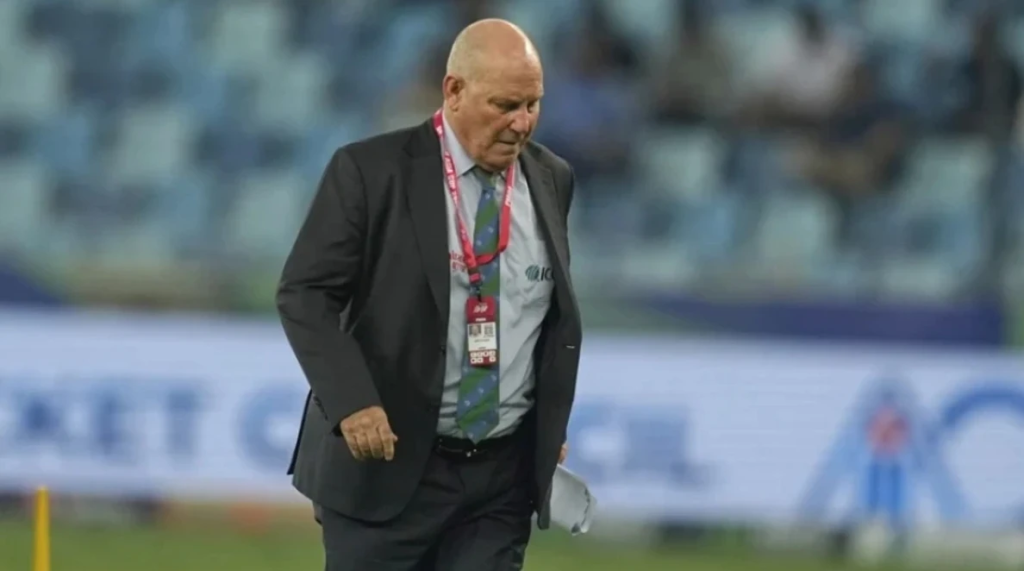The incident emerged a day after a muted video surfaced on social media, showing Andy Pycroft in discussion with the Pakistan team at Dubai Stadium.
Table of Contents
PCB’s Claim of Pycroft Apology Debunked

The Pakistan Cricket Board’s (PCB) assertion that ICC match referee Andy apologised to the team on Wednesday has been exposed as false, according to a new media report. This follows the circulation of a muted video on social media showing Andy speaking with Pakistan captain Salman Ali Agha, team manager Naveed Akram Cheema, and head coach Mike Hesson at the Dubai International Stadium before their match against the UAE.
The controversy stems from Sunday’s Asia Cup match against India, when a handshake dispute at the toss led PCB to file a complaint against Pycroft, alleging misconduct and demanding his suspension. Even after the first plea was rejected, PCB persisted, instructing players to stay at the hotel and convening an extensive internal meeting with former chairpersons Ramiz Raja, Najam Sethi, and current office bearer Mohsin Naqvi before allowing the team to play.
But did Pycroft actually apologise?

According to a Times of India report, it was 69-year-old Andy Pycroft who suggested holding a meeting with Pakistan captain Salman Ali Agha and team manager Naveed Akram Cheema in the match referee’s room after the squad arrived for their UAE game. While Pycroft discussed the possible miscommunication with the Pakistan camp, the report clarified that it was not an apology. “There was no question of any apology. Especially from someone who did no wrong,” a source told TOI.
The ICC echoed this in a six-point rebuttal to PCB, dismissing the board’s complaints as baseless. The apex body said the investigation relied solely on PCB’s initial report, which lacked supporting documentation or team statements.
ICC stated that Pycroft’s actions, carried out following directions from the ACC Venue Manager just minutes before the toss, were entirely consistent with the role of a match referee. The referee’s intent was to avoid potential embarrassment, and the body concluded: “The Match Referee was not at fault. It is not the role of the Match Referee to regulate team or tournament-specific protocols agreed outside the area of play.”

